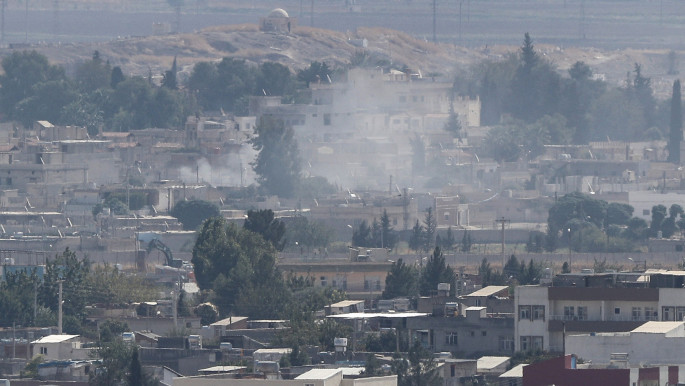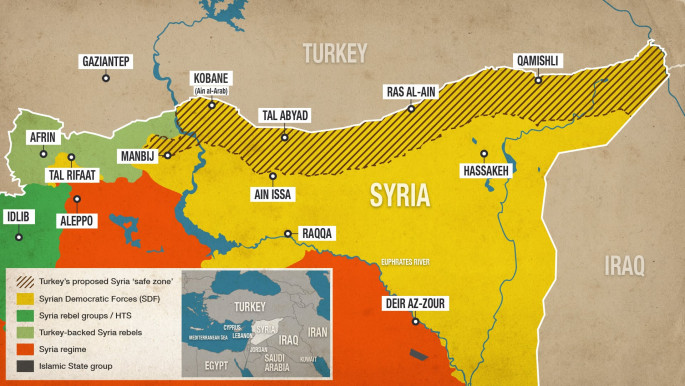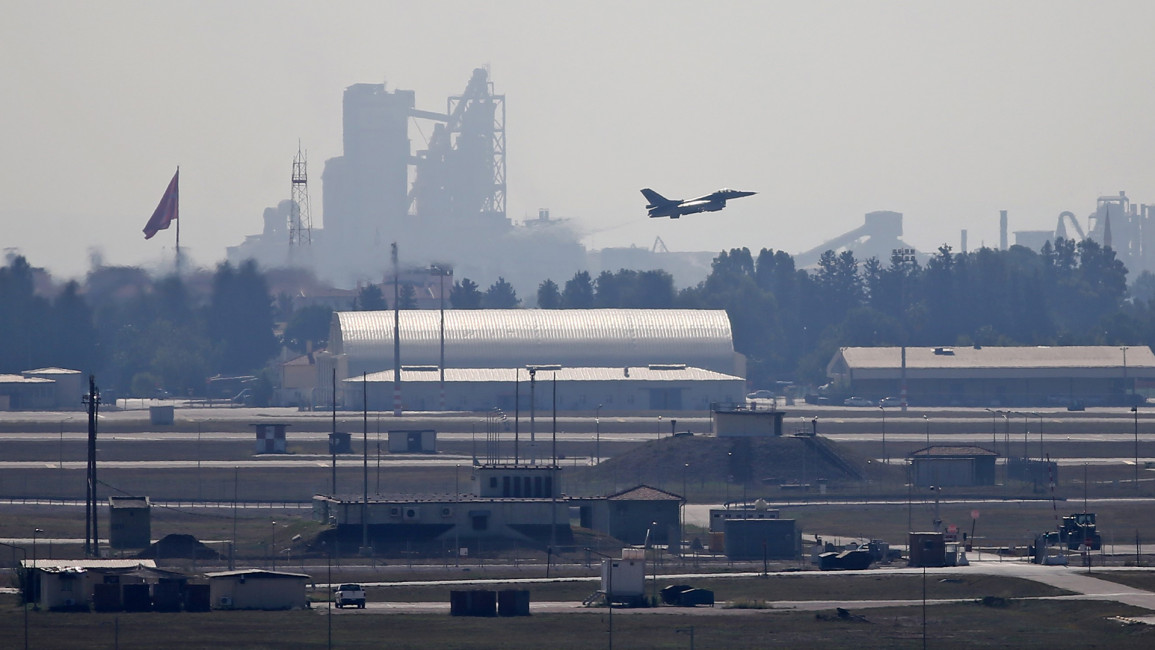Concerns mount over US nuclear bombs in Turkey amid Syria offensive
Frayed relations with Ankara over its military offensive into Syria has brought into question the American weapons stored in southern Turkey.
Even though the US government does not acknowledge the presence of weapons overseas, it is an open secret that the US has as many as 50 B-61 bombs in the Incirlink airbase in southern Turkey, around 150 km away from Syria.
President Donald Trump implicitly acknowledged the bombs by telling a reporter he was “confident” that they are safe.
Turkey, a NATO ally, has reportedly hosted American nuclear weapons that can be dropped by American planes in the event of a nuclear war for as long as 60 years.
The arrangement is part of NATO’s policy deterring a war within Europe by having a relatively small number of weapons based across several NATO states. Removing them therefore would be a diplomatic complication.
 |
|
| Read more: Turkish-Kurdish clashes continue in Syria border town despite US-brokered ceasefire |
Bad behaviour
While there is no clear indication that the nuclear weapons at Incirlik are at risk, relations between the US and Ankara have reached a new low and the conflict in neighbouring Syria has turned more complex and unpredictable.
"The arc of their behaviour over the past several years has been terrible," Defence Secretary Mark Esper said last Sunday, adding that Ankara had defied US warnings not to purchase a Russian air defence system that Washington has compared to a portal for Russian spying.
"I mean, they are spinning out of the Western orbit, if you will," he added.
In July, the Pentagon kicked Turkey out of its F-35 fighter jet program because Turkey refused to halt its purchase of a Russian-made air defence system. This was a major blow to US-Turkey relations and raised questions in Washington about whether Turkey was a reliable ally.
On Friday, former US ambassador to Turkey and senior Pentagon official Eric Edelman official said he believes the nuclear weapons are safe and secure, and instead sees risks in removing them.
"I'm not in favour of taking any actions that would potentially accelerate Turkey's thinking about pursuing its own independent nuclear deterrent," he said, noting that Erdogan had mentioned this possibility as recently as September.
Other American arms control experts say the US bombs at Incirlik would be safer in a different NATO member country.
Hans Kristensen of the Federation of American Scientists said in an interview that a review of options for the US bombs at Incirlik is overdue.
"The Air Force is concerned about not only the standard physical perimetres — whether they are good enough — but also about the manpower on the base, whether they have enough to hold back an attack from someone," Kristensen said.
 |
|
| [click to enlarge] |
Fears of a spillover
The Turkish offensive was sparked by US President Donald Trump's announcement of an American withdrawal from northern Syria, leading critics to accuse him of betraying Washington's Kurdish allies.
On Thursday evening, Trump said he allowed the two sides to fight for a few days before brokering a truce as they were like "kids in a lot".
Since the offensive's launch on October 9, the Turkish military and Syrian fighters allied with Turkey seized around 120 kilometres of territory along the border.
US and NATO allies are watching closely and fear a spillover of the war into Turkey could jeopardise the safety of the nuclear weapons.
Amnesty International said that 218 civilians have been killed on the Syrian side of the border by the Turkish operation, while 18 civilians were killed in Turkey by mortar fire from Kurdish fighters.
Hundreds of thousands of civilians were also displaced by the fighting.
Kurdish fighters put up fierce resistance in Ras al-Ain during the week-long Turkish offensive. However, Turkish-backed forces took control of half the town and the local hospital was hit, trapping patients and staff inside.
Amnesty accused Turkish forces of "serious violations and war crimes, summary killings and unlawful attacks."
There was no immediate response from Ankara, which says all possible measures have been taken to avoid civilian casualties.
Follow us on Twitter: @The_NewArab



